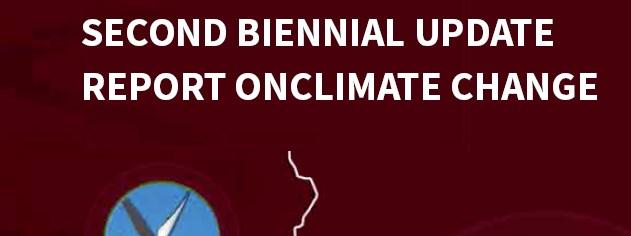Macedonia has submitted its Second Biennial Update Report on Climate Change
By doing so, Macedonia became the 15th developing country from the 154 developing country signatories of the Convention
In March 2018, the Ministry of Environment and Physical Planning submitted the Second Biennial Update Report on Climate Change to the United Nations Framework Convention on Climate Change (UNFCCC). By doing so, we became the 15th developing country (from the 154 developing country signatories of the Convention), which not only fulfilled its commitment, but also embedded the pathway that could make us climate champions.

The Second Biennial Update Report is a requirement under the UNFCCC, but it is important for other reasons as well. This SBUR, like other BURs, gives people in Macedonia (and around the world) a snapshot of GHG emissions in the country and an overview of what Macedonia is doing to address climate change. It also provides an opportunity to look at policies and investments in Macedonia and to see whether they are aligned with climate action. Furthermore, it helps to identify priority areas for investment, training, and education. One more important aspect - unlike many other reports, the Macedonian SBUR has been completed almost entirely by a team of national experts.
The work conducted under the SBUR also supports Macedonia’s priorities that are reflected in its status as a Contracting Party of the Energy Community (EnC) and as a candidate country for EU accession. The capacity that is developed under the BUR process moves Macedonia closer to being able to meet the more rigorous requirements of these two bodies.
However, in addition to the report’s findings, the process of compiling the SBUR is important. It brings together policy-makers and scientists from many different sectors, ranging from energy and industry to agriculture and forestry and even public health and disaster management. It develops recommendations on how to improve monitoring and reporting, and it creates a situation where many different institutions must work together on a regular basis. Finally, it fosters a partnership between science and policy-making, as each report must consider the quality of the information and approaches and the continuity of the process.
As the Minister Sadulla Duraki stated “Our aim is to use this document as a basis for developing and undertaking joint #ClimateAction since this is also an obligation for our country arising as a party to the United Nations Framework Convention on Climate Change, Paris Agreement, Energy Community and also as an EU candidate country. We do not want it to remain only written on paper.”
The Second Biennial Update Report on Climate Change has been developed with technical and financial support of the United Nations Development Programme (UNDP) and the Global Environmental Facility (GEF).
-
Корисни линкови
26-01-2021 -
Справување со климатските промени и загадувањето на воздухот во градот Скопје
29-04-2018 -
Финансирање во климата
28-01-2022 -
Микронаративи
08-06-2022
{{"article.lastestPosts"|translate}}
-
Нови финансирања за унапредување на природата и биолошката разновидност на Зелената агенда за Западен Балкан
11-03-2025 -
Започна проектот за развој на 1-от и 2-от двогодишен извештај за транспарентност и 5-от национален извештај за климатски промени на С.Македонија
04-03-2025 -
Земјоделски форум за климатски промени: Се изнаоѓаат решенија за поголема климатска отпроност на заемјоделието
02-12-2024 -
Заврши COP29, центарален фокус на финасирањето за климата
02-12-2024



 Мод за знаковен јазик
Мод за знаковен јазик Говорен асистент
Говорен асистент Означи линкови
Означи линкови

 Зголеми маус
Зголеми маус